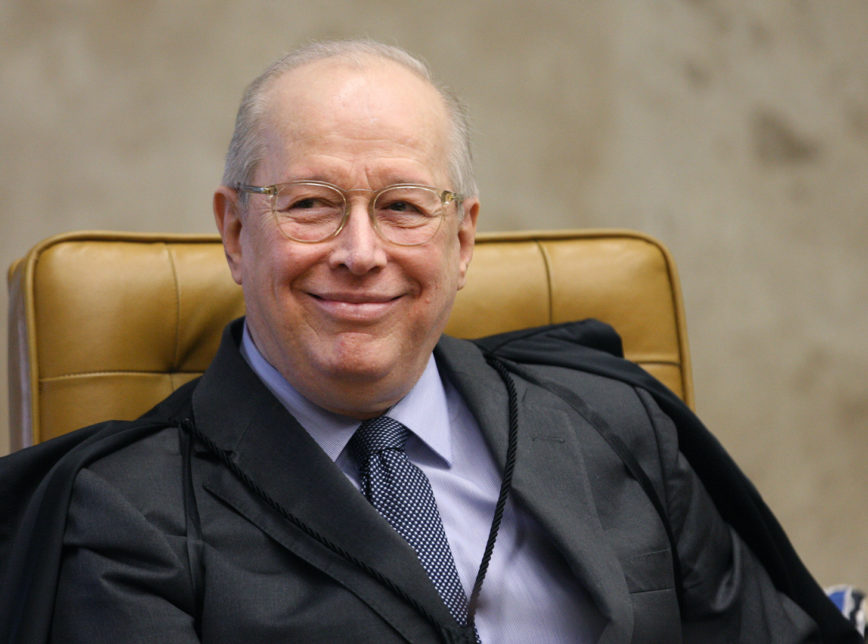RIO DE JANEIRO, BRAZIL – In his last Supreme Court session, the doyen of the Court, Celso de Mello, again argued that President Jair Bolsonaro should testify in person in the inquiry in which he is being investigated for politically interfering with the Federal Police.
He stressed that no one is above the law or the Federal Constitution and that the President would only be able to testify in writing, as he wished, had he been either a witness or a victim in the proceedings.
After two hours and ten minutes reading his opinion, the Federal Supreme Court (STF) session was closed by the Court’s Chief Justice Luiz Fux. He wanted the last word of the day to come from Mello. It was a kind of homage to the doyen, who retires on October 13th. The other ten justices are required to vote on the case. The new date for the review of the case has not been scheduled.

Behind the scenes of the Supreme Court, there are indications that the majority of justices will disagree with Celso de Mello and authorize Bolsonaro to testify in writing. And in order for the magistrate who served the STF for 31 years not to end his work with a defeat by his fellow jurists, there was an informal agreement for the session to be quickly closed.
This comes at a time when Bolsonaro has been drawing closer to some STF justices, such as Dias Toffoli and Gilmar Mendes. Last week, the President met with the two to introduce his nominee to replace Celso de Mello, Judge Kássio Nunes Marques.
The remaining justices are expected to base their votes on the prerogative granted to Michel Temer who, when he was president, was authorized to testify in writing. It was 2017 and the then-president was under investigation for the crimes of passive corruption, interference with the investigation of Operation Lava Jato, and criminal organization. Edson Fachin, the rapporteur for Temer, authorized the Federal Police’s questions and the president’s answers in writing.
In his vote on Thursday, Celso de Mello emphasized that it was not possible to dispense with the oral proceedings in a criminal case. “The concept of a Republic translates an essential value, expresses a fundamental dogma of equality of all before the laws of the State (…) No one, absolutely no one is above the legal authority of the Brazilian State,” he said.
Mello also sent some indirect messages while reading his vote. He mentioned that other heads of state or government gave testimony in person when under investigation for crimes committed in their countries during their administrations. He mentioned US President Bill Clinton, Israel’s Benjamin Netanyahu, and Italy’s Silvio Berlusconi.
He also mentioned George Orwell’s dystopian work ‘Animal Farm’ to say that citizens could not be treated differently. In the book, this differentiation is made in the passage in which the writer states that “all animals are equal, but some are more equal than others.”
Among the other ten justices, at least one has already indicated that he agrees with the argument that the President may testify in writing. Last month, during Celso de Mello’s medical leave, Marco Aurélio advanced his vote in the case by stating that he agreed with the Federal Prosecutor General’s opinion, which called for the President to be allowed to answer the Federal Police investigators’ questions in writing.
The inquiry against the President came after Sérgio Moro stepped down from the Ministry of Justice in April. At the time, the ex-Minister claimed he was leaving office because he did not agree with the President changing the Federal Police leadership for personal interests, lacking professional grounds to do so. He said that Bolsonaro wanted to appoint a new Federal Police director-general so that he could have access to confidential information and intelligence reports.
Since then, Moro and Bolsonaro have been under investigation by the Federal Police in an inquiry authorized by the Supreme Court. The President was alleged to have committed crimes of perjury, coercion in the course of proceedings, influence peddling, obstruction of justice, and passive corruption, while the ex-Minister was investigated for alleged crimes of slanderous denunciation, crimes against honor, and contempt.
Moro has already testified in the case. He spoke directly to the police involved in the investigation. In Celso de Mello’s opinion, if his argument is accepted, the ex-Minister could attend Bolsonaro’s in-person testimony and ask questions through his attorneys, if he so wishes.
It is still unclear who will be the rapporteur of this specific case, which is currently under Celso de Mello. The replacement of an STF Justice typically inherits all cases from the outgoing justice. But since Kássio Nunes Marques has been appointed by Bolsonaro, the Supreme Court is trying to ensure that the potential future justice will not have to judge a case that directly interests the President.
Nunes Marques can also recuse himself in both this and another case in the doyen’s hands, where Senator Flávio Bolsonaro, the President’s son, is calling for the investigation against him in the salary kickback case to be judged by an appellate court, rather than by a lower court judge.
Source: El País

